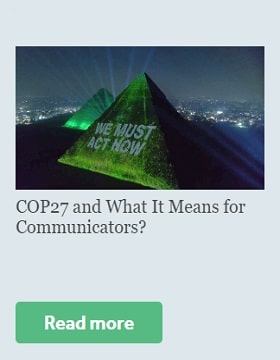
Public Affairs Tracker: Insights into the Singapore Budget

Asia Pacific’s High-End Healthcare Market
Greenwashing: It’s Coming Out in the Wash
March 2023

By Sandpiper’s dedicated ESG Advisory team. Our team has extensive experience working with internal and external stakeholders across a variety of teams and disciplines – from communications to operations – to help organisations shape and refine their ESG strategies and communications.
Lime green may be a key colour to wear this season, but it won’t be tolerated by regulators. Mercer Super, which is one of Australia’s leading corporate pension funds, is the latest company to be sued over greenwashing claims. It is however, the first time Australia’s corporate regulator has taken legal action in this space.
What’s next for corporates on greenwashing?
With a crackdown on greenwashing occurring globally, it is important to understand its implications. For Deutsche Bank’s wealth management subsidiary DWS, who was accused of greenwashing in 2021 by the German regulator, it quickly moved from being bad Public Relations to a significant legal risk. Over 3 million documents have been handed over to assist in the enquiry and in 2022 DWS had reported a 23% drop in net profits. The SEC (U.S. Securities and Exchange Commission) is also increasing its focus in the United States; a $1.5 million fine was imposed on Bank of New York Mellon in 2022.
ASIC (Australian Securities and Investments Commission) states that: “In relation to investments, ‘greenwashing’ is the practice of misrepresenting the extent to which a financial product or investment strategy is environmentally friendly, sustainable, or ethical. Greenwashing distorts relevant information that a current or prospective investor might require in order to make informed investment decisions. It can erode investor confidence in the market for sustainability-related products and poses a threat to a fair and efficient financial system.”
Unfortunately, many companies’ climate strategies are riddled by vague commitments and offsetting plans. Capital is urgently needed to be directed into activities that solve environmental issues like climate change and laws are being introduced to ensure they do. Currently Europe is leading the charge. New anti-greenwashing regulations require companies to collect their own data, back up any environmental claims and ensure the data is clear and verifiable.
“Deeply committed to sustainability”
The Mercer Super fund was marketed as being suitable for members who ‘are deeply committed to sustainability’ because they excluded investments in companies involved in carbon intensive fossil fuels. However, according to ASIC, the fund invested in 15 fossil fuel companies, 15 alcohol companies and 18 gambling stocks.
Prohibitions on misleading and deceptive statements and conduct are a core component of general consumer protections in most developed markets, indeed Australia, New Zealand, UK, US, Canada and Singapore already have protections in place.
If ASIC’s claims are verified, the misleading statement will be harshly judged.
Warning ‘shots’
Alarmingly, an industry researcher ‘Market Forces’ has said that eight of the 11 major super funds in Australia were potentially misleading customer by overstating their ESG credentials. A global investigation last year by the ICPEN (International Consumer Protection and Enforcement Network) also found that as many as 40% of claims about environmental action may be fraudulent. Issues raised by the ICPEN include:
- 1.Vague claims and unclear language including terms such as ‘eco’ or ‘sustainable’ or reference to ‘natural products’ without adequate explanation or evidence of the claims.
- 2. Own brand eco logos and labels not associated with an accredited organisation.
- 3. Hiding or omitting certain information, such as a product’s pollution levels, to appear more eco-friendly.
Last June ASIC publicly advised that they were increasing their focus on greenwashing, stating that firms should be comfortable talking to their frameworks and methodologies. The regulator also clearly stated that ‘when they find wrongdoing, they will not hesitate to use a range of regulatory tools’ to clamp down on these fallacious green claims. Already, ASIC has issued fines worth more than A$140,000 to several firms, including one pension fund – with more likely to follow.
How to avoid greenwashing?
The days of simply stating ‘putting sustainability of the heart of everything we do’ is coming to an end. Regulators are homing in on vague and broad brush statements. Issuers and fund managers will need to explain how sustainability related factors are incorporated into investment decisions and provide validity of claims. Below are 6 key elements to consider:
- Understand existing and current regulations. A raft of advice has been released to help companies avoid the greenwashing trap and guidelines are in place to assist when making environmental marketing claims. It is important to understand these when building out your advertising, marketing or communications strategy.
- Education. Look to upskill your Board and employees on sustainability and ESG fundamentals as well as the risk of greenwashing.
- Risk management. Embed sustainability or ESG criteria into existing risk management procedures and controls and follow the recommendations of the TCFD (Task Force on Climate-related Financial Disclosures).
- Prioritise substance over style. Promote the claims that can be supported with data or evidence, avoiding vague high-level claims.
- Provide more detail. The journey to a low carbon future is not easy. Communicate truthfully what you are doing, the challenges and actions you are taking.
- Relook at your narrative. Analyse your current messaging and audit your statement vs your claims.
Greenwashing is more than just a reputational risk, it is quickly becoming a legal risk. We encourage companies to get in touch with our experienced team of consultants that put substance over style and are committed to preventing greenwashing in the market.





